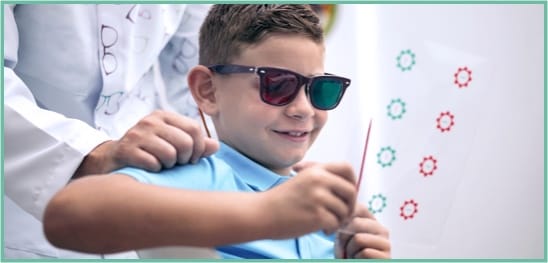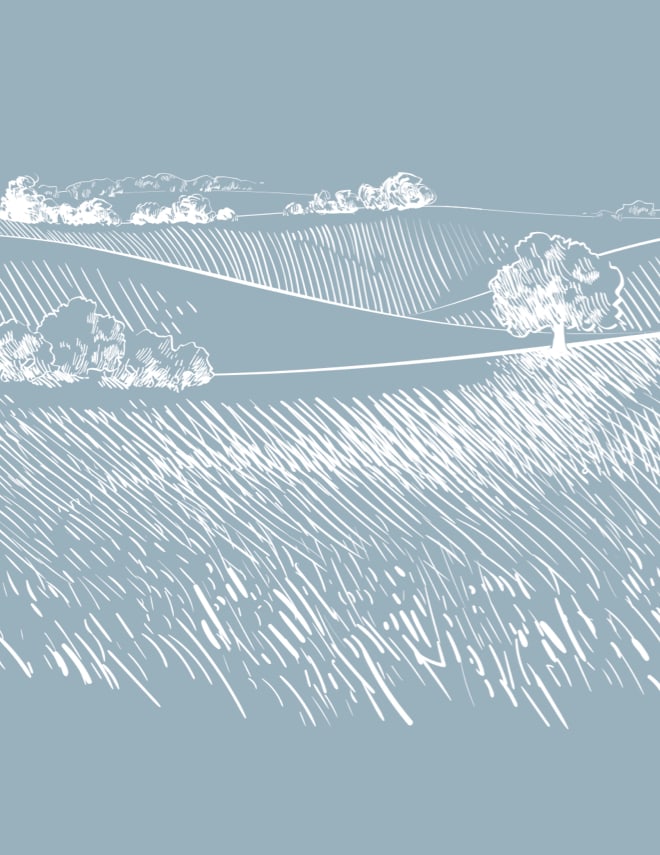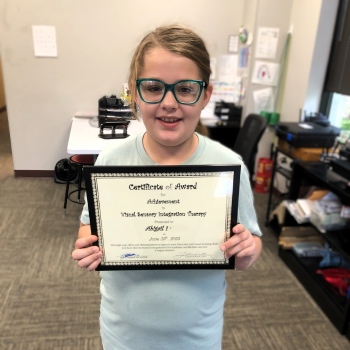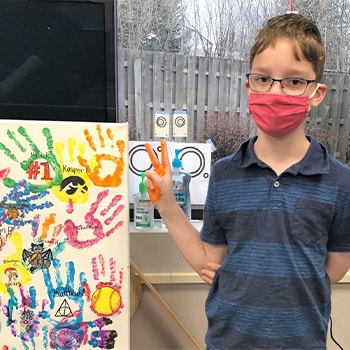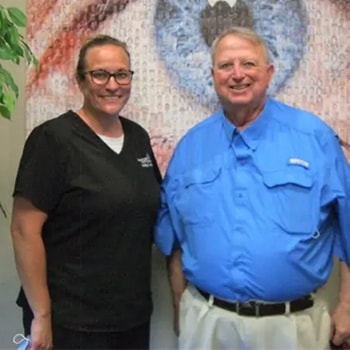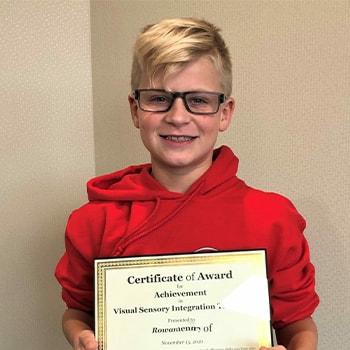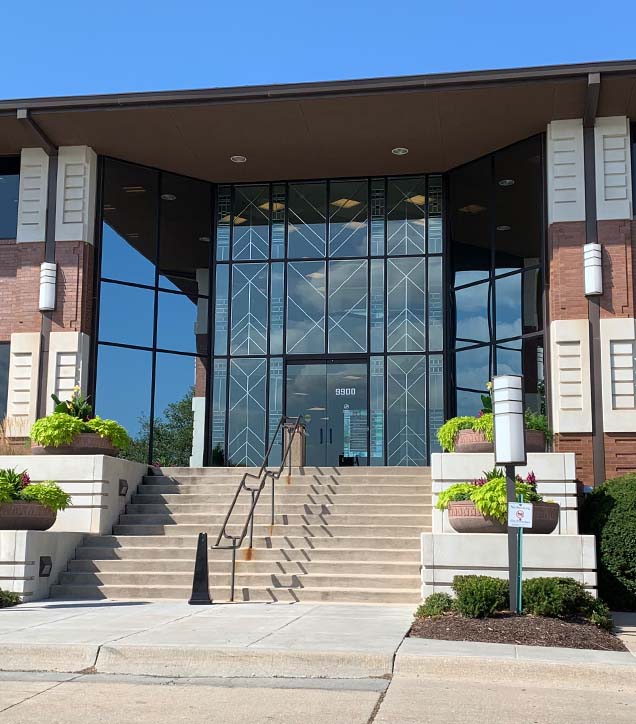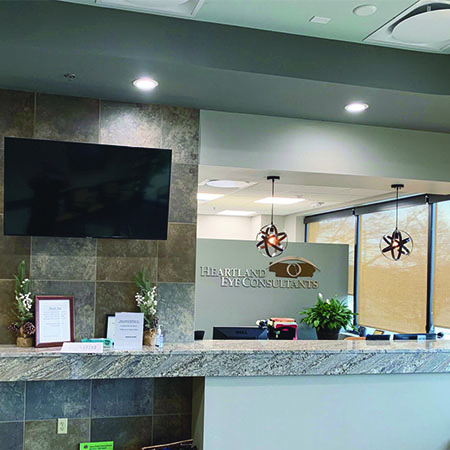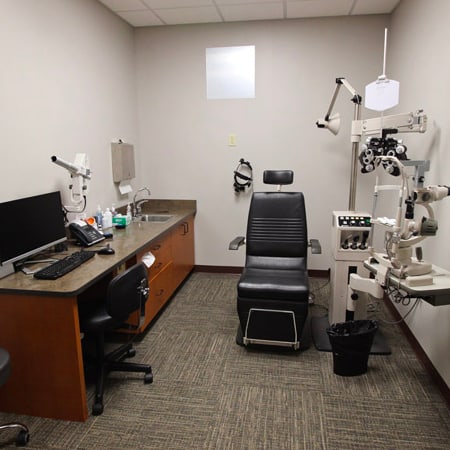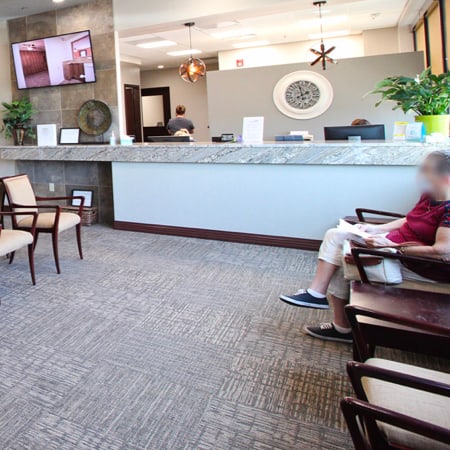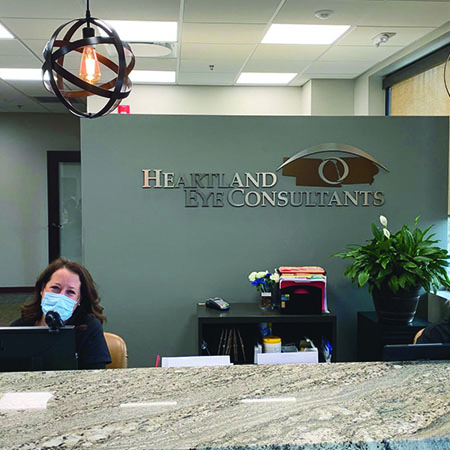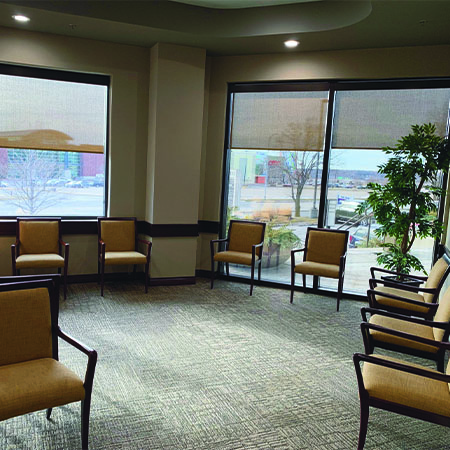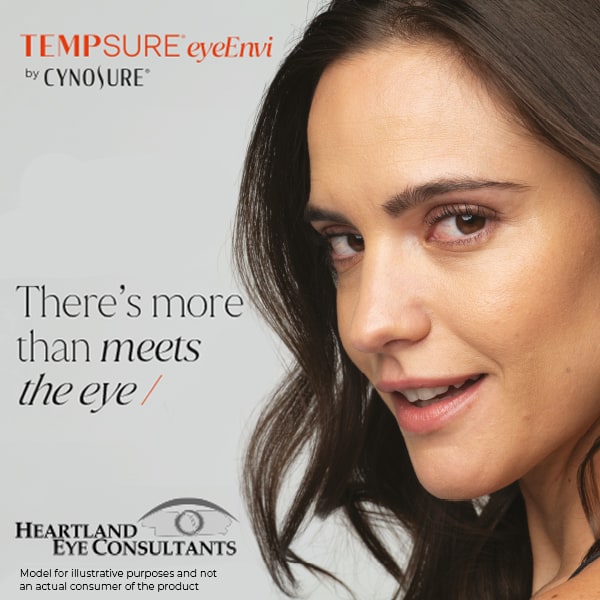When you suffer a concussion, it’s not just your head that takes a hit—your vision can also be affected. For many concussion patients, the road to recovery includes navigating through various post-concussion symptoms, including vision problems.
Typically, people experience vision problems within the first two weeks of a concussion. While the duration of these issues largely depends on the severity of the concussion, they typically resolve in about four weeks (although older adults may need longer).
Post-Concussion Symptoms
Vision issues post-concussion are common. These symptoms can be wide-ranging and affect multiple aspects of life. Typical post-concussion symptoms include:
- Headaches
- Dizziness
- Blurry Vision
- Cognitive difficulties
- Loss of place with reading/tracking
Vision problems often accompany these issues, further complicating the recovery process.
While most symptoms resolve within a few weeks, some may persist longer, making it crucial to monitor your condition closely. Persistent symptoms can hinder your daily activities and prolong your recovery, so understanding the signs and seeking timely treatment is essential.
What are the Signs of a Concussion in the Eyes?
One of the first areas to show signs of a concussion can be your eyes. Vision problems can manifest in several ways, making it essential to recognize the early signs:
- Blurred vision
- Double vision
- Difficulty focusing
- Light sensitivity
- Difficulty reading
- Difficulty tracking moving objects
These issues can be frustrating, especially if they interfere with work or daily activities. It’s essential to keep track of these symptoms and report them to your healthcare provider.
How Long Do Concussion-Related Vision Problems Last?
The duration of vision problems after a concussion can vary widely from person to person. For many, symptoms improve within a few weeks to a few months. However, some individuals may experience vision issues for a more extended period, especially if they’ve suffered a severe concussion.
Monitoring your symptoms and following your healthcare provider’s recommendations can help speed your recovery. Being patient and giving yourself the time you need to heal fully is also essential. Rushing the process can lead to setbacks and prolong your recovery.
Can Concussions Cause Permanent Vision Problems?
The good news is that most vision problems related to concussions are temporary. However, in some cases, they can become long-lasting or even permanent. The severity and duration of your vision issues will depend on various factors, including:
- The extent of your injury
- Your age and overall health
- Which area of your brain & visual system has been injured
- How quickly you seek treatment.
Permanent vision problems are rare, but can occur if the concussion causes significant damage to the visual pathways in the brain. If your vision problems last longer than a few weeks or change significantly, you must immediately check in with your doctor or optometrist. Early intervention and proper management can significantly reduce the risk of long-term complications.
How Do You Know If You Have Permanent Damage From a Concussion?
Persistent symptoms that don’t improve with treatment may indicate more severe issues. If you continue to experience vision problems after several months, it’s essential to consult with a specialist who can conduct a thorough evaluation. Advanced imaging techniques like MRI or CT scans can help identify any underlying damage contributing to your symptoms.
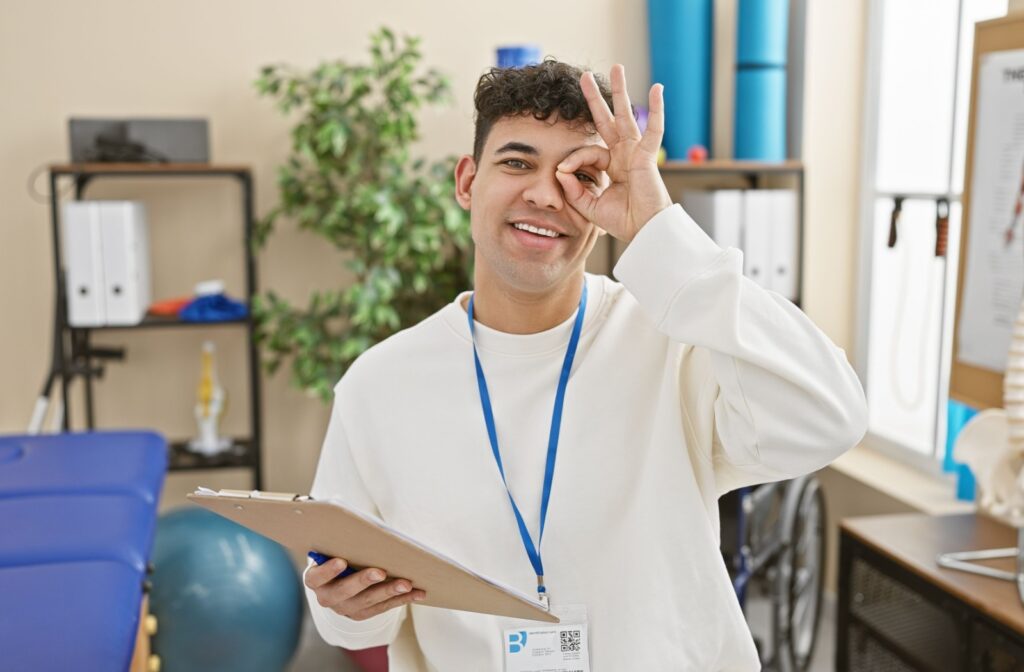
How to Treat & Manage Vision Problems
Managing vision problems after a concussion requires a multi-faceted approach. Fortunately, many treatments for these vision problems are similar to general concussion treatment tips:
- Limit activities that strain your eyes (reading, using electronic devices, watching TV, etc.)
- Avoid overstimulating environments
- Wear sunglasses to reduce light sensitivity
- Rest! Giving your eyes a break can help reduce symptoms and promote healing.
Your healthcare provider may recommend specific treatments, such as vision therapy, to address your symptoms. Vision therapy involves exercises designed to improve the connection between your eyes and brain, helping to alleviate issues like blurred vision and difficulty focusing.
How Can Vision Therapy Treat Vision Problems?
Vision therapy is a highly effective treatment option for concussion-related vision problems. It involves a series of exercises and activities tailored to your specific needs, designed to:
- Develop or improve fundamental visual skills and abilities.
- Retrain the eyes and brain to work together and maximize visual potential.
- Improve visual comfort, ease, and efficiency.
- Change how you process or interpret visual information.
- Alleviate concussion symptoms.
Working with a trained vision therapist can provide personalized guidance and support throughout your recovery. During a typical 6-12 month period of vision therapy, in-office sessions and daily at-home exercises will help you retrain your brain and eyes to work together more effectively post-concussion, helping you return to normal activities more quickly.
Heartland Eye Consultants understands that navigating post-concussion vision problems can be overwhelming, but we’re here to support you every step of the way. Contact us today to learn more about how vision therapy and other treatments can help support your road to recovery.









